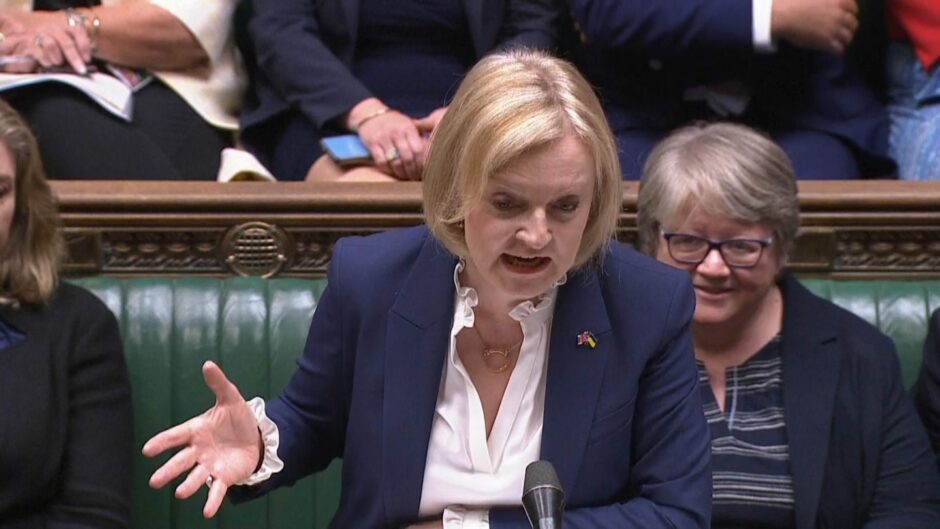
North Sea companies have hailed the new prime minister’s decision to side with the oil and gas industry.
Delivering her energy plan to the House of Commons last week, Liz Truss laid out her ambition to turn the UK into a “net energy exporter by 2040”.
To achieve that aim she confirmed plans for a new North Sea oil and gas licensing round.
Westminster is hopeful that the process, which could produce more than 100 new permits, will open to bidders next month.
Licensing ‘half the battle’
Steve Brown, chief executive of oil company Orcadian Energy (LON: ORCA), welcomed the move, but said more licenses is only “half the battle”.
He called for government to incentivise spending to “reinvigorate” the North Sea and yield as much “affordable energy” as possible.
Mr Brown said: “The Prime Minister is right to prioritise licenses in the North Sea and it was encouraging to hear Liz Truss mention these developments in her remarks. Orcadian have been calling for the new licensing round to be brought forward, so this is good news for the industry and the UK.
“But this is only half the battle. Accelerating licenses but failing to increase investment into North Sea projects will not help with domestic energy security. Owning a license is like owning a plot of land. There is no benefit if you do not have the money to build a house on it. We need both licenses and funding to reinvigorate the sector.
“We in the industry recognise the need to transition to net zero by 2050, but this must not come at the cost of financial hardship for millions. The market needs rebalancing – quite simply, we need as much affordable energy as we can get. Government now has an opportunity to correct the mistakes of the past by incentivising domestic energy investment.”
‘Innovative’ solutions needed to incentivise investment
Mr Brown was a rare industry supporter of the government’s energy profits levy, specifically the tax incentives.
An increase in the investment allowance, included as part of the windfall tax, could shave 75% off the coast of Orcadian’s Pilot oilfield.

But Mr Brown believes more needs to be done to increase investor confidence in the basin, and has urged policy makers to get “innovative”.
He said: “We need additional investment in the oil and gas sector in order to shore up our own domestic energy supply. Whilst the Energy Profits Levy does include nuances to increase investment, we need to go further than that and increase investor confidence. The Government must find innovative ways of encouraging investment in the sector, to lower bills for households in the long-term and increase our own domestic energy sector.”
Reabold cheers fracking reversal
As well as setting out plans to scale of North Sea oil and gas production, Ms Truss also called an end to the UK’s moratorium on fracking.
It means shale gas could resume flowing from onshore wells in as little as six months, Ms Truss said.
London-listed oil and gas firm Reabold Resources (LON: RBD) has warmly greeted the government’s decision to reverse the ban on fracking, imposed in 2019.
In a statement, the company said: “Reabold welcomes this change in policy and notes that it could have a materially beneficial effect on the company’s UK onshore business, including the potential to exploit additional resources within its existing licence interests and other potential opportunities.
“The company awaits further details following the announcement and will provide updates to the market as appropriate.”
Recommended for you


 © Orcadian Energy
© Orcadian Energy © HOC/UNPIXS
© HOC/UNPIXS